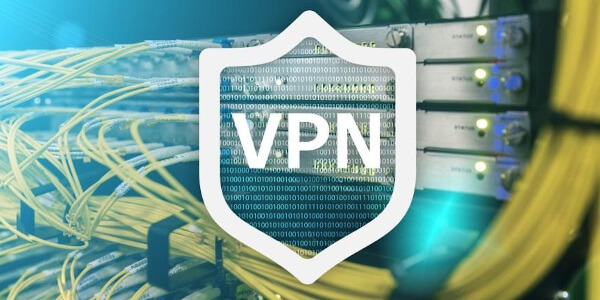
Artificial intelligence refers to the machine's ability to learn and think. Given that it sort of mimics how humans think and reason, AI's application is virtually endless. AI reduces human error, do a task that is risky for humans to do, help humans solve complex, and so much more.
With the emergence of artificial intelligence, concerns about data privacy have been brought into the light. Artificial intelligence relies on our personal information to learn. And as Private Tunnel would put it, for us to achieve a more convenient life, we trade in more of our personal information.
Encryption safeguards our personal information. But big firms are investing heavily in AI that experts believe that it could result in encryption taking a back seat. In a tug of war between artificial intelligence and encryption, will big corporations choose encryption over AI?
What does the future hold for VPNs? Will VPN for all devices stay relevant in a world that could be dominated by artificial intelligence in a distant future?
VPN as a refuge from AI censorship
Governments and big corporations harness the power of artificial intelligence to detect, censor, and ban content — including social media censorship — so consumers won't have a way to access it.
In an article published by Emerj, they underscored how social media platforms have been using AI in their censorship applications. Facebook, for one, has been using an AI-enabled tool to advocate suicide prevention and mental health. The AI tool, through anonymous historical posts and live video data paired with pattern recognition, can predict when a user is expressing intentions of suicide or self-harm.
YouTube also has leveraged AI to combat terrorism-related video content. Their machine learning tool detects and flags such videos and sends them to YouTube video reviewers to verify them. In September 2017 alone, the report said, 83 percent of these videos promoting violent extremism were taken down by the AI tool prior to being reviewed.
While these initiatives may be laudable, many are still skeptical that social media platforms will not abuse the use of AI in censoring content. And the situation is even worse on the side of governments. China, for example, is known to be very aggressive when it comes to banning content.
Policies enforced by some governments make the internet a restricted place, such as the so-called "Great Firewall” of China, and artificial intelligence allows these governments to be effective in the censorship. Capitalism also benefits from artificial intelligence in restricting streaming brands from showing content outside their geo-license-allowed location.
Such realities of AI censorship, including the lack of online privacy, make VPN for all devices a more in-demand commodity more than ever, according to the article by SmartDataCollective.
AI underscores the need for privacy now more than ever
Silicon Valley's growing obsession with artificial intelligence is making our personal data less secure than they were before, warns Gizmodo.
Artificial intelligence allows machines to learn as humans learn from their environment, and so it needs data for it to learn and adapt. Artificial intelligence has lots of good uses, especially in sectors such as education, healthcare, finance, manufacturing, and retail.
However, the flip side to these benefits is that we are trading one of our most important intangible assets — personal information. AI-powered applications such as Google assistant need to access data stored in your device, as well as the content displayed on your device’s screen. AI needs to feed on that information for it to serve you personalized recommendations and suggestions such as where you can eat, what movies to watch, how to get to a destination, and more.
That power to invade one's privacy has caused many to grow increasingly uneasy, the Financial Management report said. This is because AI can collect sensitive information, including their credit histories, preferences, locations, and more. A vast majority of those surveyed by Genpact in 2018 said that they do not agree that companies should use artificial intelligence if it means invasion of their privacy, no matter how that technology improves their experiences as consumers.
VPN clients help wary consumers feel more secure and free to explore the online world. VPN for all devices allow users to access location-restricted websites and provides protection against censorship and data breach. And with artificial intelligence’s growing threat to privacy, VPN clients need to step up their game.
AI and VPN security
VPNs are actually benefiting from artificial intelligence too. Through machine learning, VPNs for all devices can combat the very threat artificial intelligence brings to data privacy. Machine learning algorithms allow VPNs to be more effective in protecting users from online threats, Smart Data Collective said.
Machine learning and VPN also work hand in hand in bringing corporate data security to the next level. They are even used in ensuring web security in digital marketing and eCommerce. As cited by Analytics Insight, a study by the Journal of Cyber Security Technology revealed that machine learning is responsible for helping VPN achieve 90 percent accuracy.
Tech Radar said that one of the changes brought about with the help of artificial intelligence is the AI-based routing. AI-based routing allows internet users to be routed to a VPN server depending on his location, which means connecting to the VPN server that is closest to the destination server.
A user connected to a website hosted in Japan, for example, will most likely get a Tokyo location as his exit server, Tech Radar explained. Such advancement through the help of artificial intelligence optimizes ping response while making sure that VPN traffic stays within the network, and tracking the user is much harder to do.
VPN also helps make home connections more secure, especially with the rising incidence of internet crimes. VPN suites use artificial intelligence capabilities to add a whole new layer of protection, Smart Data Collective said.
Conclusion
As it is, VPN for all devices is certainly not going away. The rise of artificial intelligence all the more underscores the need for VPN’s protection. Artificial intelligence truly has the power to make our lives more comfortable and convenient, but it is also subject to abuse. And VPN helps to keep that in check.


 Copyright 2000-2025, WebSitePulse. All rights reserved.
Copyright 2000-2025, WebSitePulse. All rights reserved.